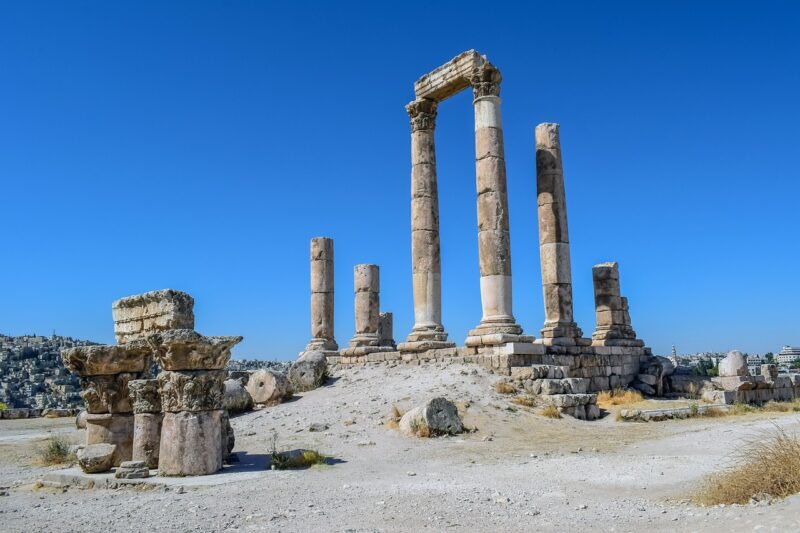
The calendar we use today is a refinement of one of history’s most critical innovations, and though it might seem mundane, it has profoundly affected the way we live our lives. The history of the calendar, particularly as it pertains to the influence of Julius Caesar, is a captivating tale of political ambition, cultural blending, and astronomical precision.
1. The Need for Calendar Reform
For centuries before Julius Caesar’s time, the Roman calendar was a mess. Initially a lunar calendar, it fell out of alignment with the seasons because it failed to account for the discrepancy between lunar months (around 29.5 days) and the solar year (about 365.25 days). As a result, the seasons began to drift, leading to confusion around agricultural cycles and religious festivals.
Roman leaders often manipulated the calendar for political gain, adding extra months or days to extend or shorten politicians’ terms in office or influence elections. This instability highlighted the need for a consistent and reliable calendar system.
2. Julius Caesar’s Grand Vision
In 46 BC, Julius Caesar returned to Rome after spending time in Egypt, where he was introduced to the Egyptian solar calendar. Intrigued by its efficiency and precision, Caesar recognized that a robust calendar system could serve his political ambitions and help unify his expansive empire.
By inviting Greek astronomer Sosigenes to assist in his reform efforts, Caesar aimed to introduce a new calendar system that would address the problems plaguing the Roman calendar. The primary responsibilities of Sosigenes included adjusting the breakdown of the year, aligning the months, and maintaining consistency in the yearly cycle.
3. The Julian Calendar: A New Beginning
The outcome of these reforms was the Julian calendar, which made significant changes to how time was recorded and understood. Here are the key features of the Julian calendar:
- Length of the Year: The Julian calendar consisted of 365 days, divided into 12 months, with an extra day added every four years (leap year) to account for the fractional difference in the solar year.
- Months and Days: January was given 31 days, February 28 (29 in leap years), and other months varied between 30 and 31 days. This format organized the months more systematically than the complex Roman calendar.
- Stability: By setting February to have 28 days in a common year and 29 in a leap year, it ensured the seasonal calendar remained stable, solving the years of inconsistency that plagued the old calendar.
The adoption of the Julian calendar marked an essential turning point in history, allowing Rome and later Europe to celebrate festivals and conduct agricultural activities in sync with the seasons.
4. Impact of the Julian Calendar
The introduction of the Julian calendar had far-reaching effects, both in ancient Rome and across future generations:
- Political Power: Caesar’s calendar reform was seen as a reflection of his power and authority. It helped stabilize the empire administratively and is often cited as a contributing factor in the consolidation of Roman governance.
- Global Adaptation: The Julian calendar spread throughout the Roman Empire and influenced the calendars of many cultures. While modifications occurred over the centuries, its framework served as a foundation for various calendar systems worldwide.
- Guiding Future Calendar Reforms: Despite its initial success, in the long term, the Julian calendar was off by about 11 minutes each year, leading to the creation of the Gregorian calendar by Pope Gregory XIII in 1582, which is the calendar we use today.
5. Legacy of Julius Caesar’s Calendar Reform
Even today, Julius Caesar’s calendar reform serves as a reminder of the ways in which human endeavors in governance can lead to major advancements in society. The Julian calendar brought downward pressure to the chaotic calendar systems of the past, allowing for better planning of everything from agriculture to business, and even religious observance.Instead of being simply a means to mark time, calendars now represent a tool of synchronization and unity among diverse civilizations.
Despite its imperfections, the calendar established by Julius Caesar is a fundamental piece of human history, bridging the gap between the ancient and modern world.
Conclusion
The legacy of Julius Caesar’s calendar reform echoes through history. It not only demonstrates his visionary leadership but also reflects humanity’s ongoing struggle for order, prediction, and understanding of the universe. The Julian calendar, despite its flaws, paved the way for the modern calendar we follow today. Its significance transcends time, representing the ingenuity in devising concepts for organizing and structuring communal life.
If there ever was a calendar worth celebrating, it would undoubtedly be the Julian calendar—a testament to the brilliance of human thought and the perpetual quest for a more synchronized existence.








